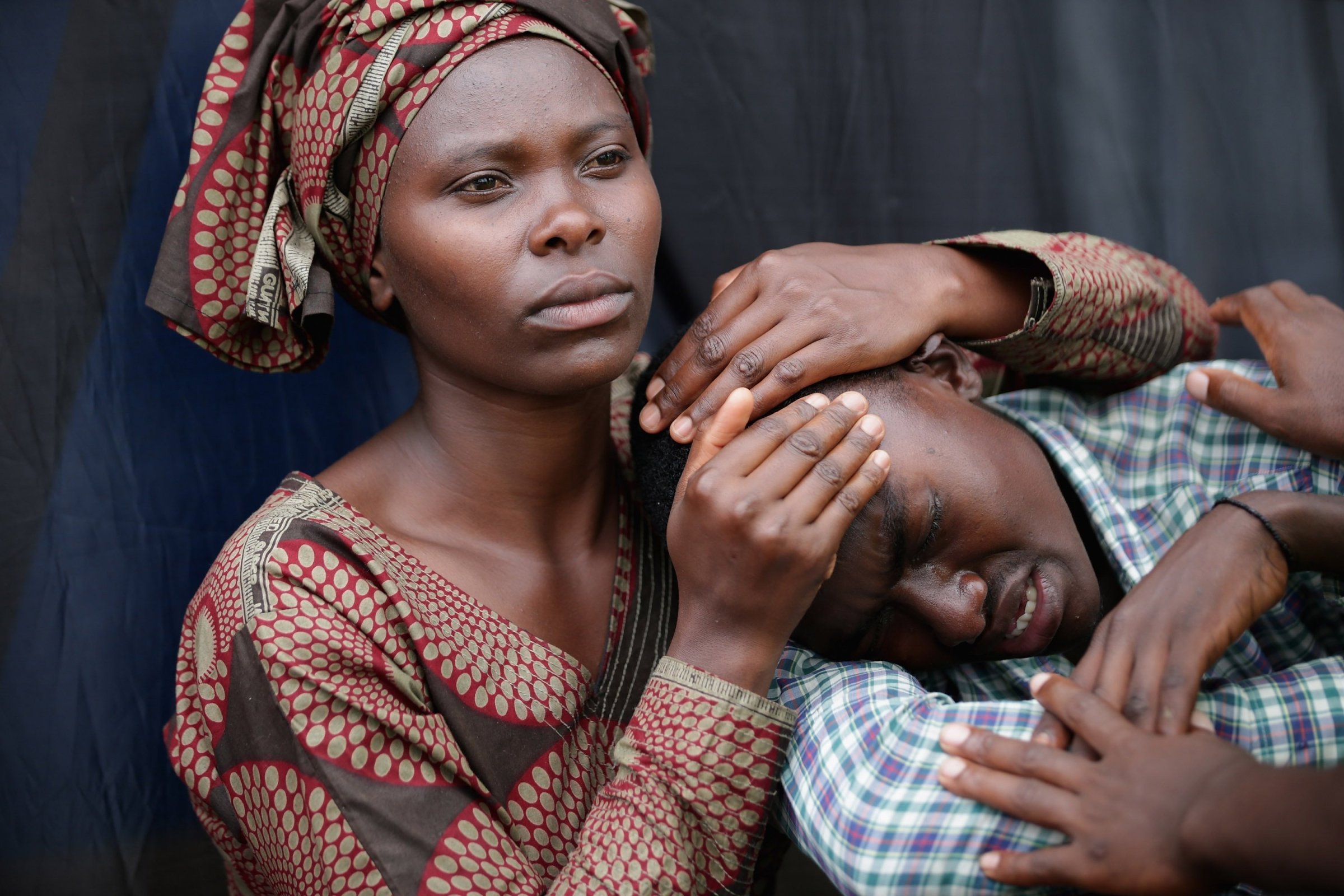
To consider Rwanda’s journey from the blood-drenched land of genocide that it was in 1994 to the stable, dynamic state it is today is to be awed by a tremendous capacity for human achievement over impossible odds. After all, in just over 100 frenzied days of killing, some of the citizens of this little mountain country of heartbreaking beauty managed to eliminate one-tenth of Rwanda’s population of 8 million in an outpouring of ethnic hatred that shocked the world. When I reached Rwanda in the days after the massacre, a frightening silence had enveloped the country. Rwanda felt like a country left for dead.
Now, even as the world somberly marks the 20th anniversary of the start of the genocide, Rwandans can take pride in their country’s recovery. Led by the almost fanatically determined President Paul Kagame, Rwanda has become something of a case study for a society’s recovery, in every sense as dramatic as Japan’s and Germany’s rise from the carnage of World War II.
With help from allies, especially the U.S. government, Rwanda guarantees basic health to all its citizens. Life expectancy has nearly doubled. The economy is growing at 8% a year. Corruption is among the lowest not just in Africa but anywhere. Rwanda has the world’s highest rates of female participation in the country’s political leadership. And Kigali, the capital, must rank among the world’s safest cities.
But in raising his country from the dead, Kagame appears to have lost sight of some of the essential elements of what makes a fully functioning, modern democratic state. If his critics are correct—and he has as many as he has supporters like Bill Clinton and Tony Blair—then he has wholly imbibed the famous treatise by Niccolò Machiavelli, which advocates judicious use of brutalist tactics in the cold-blooded pursuit of maintaining the state.
Kagame has repeatedly denied that either he or his government has any involvement in political violence or intimidation. But Rwanda is a country in which many citizens live in circumstances of highly circumscribed liberty and, often, fear. The authorities have regularly barred opposition politicians from elections, and at times opponents have disappeared without explanation. Human-rights groups, including Human Rights Watch and the Committee to Protect Journalists (CPJ), have investigated what they believe is a pattern of intimidation of journalists. “Rwandan intelligence agents directly threaten local and foreign journalists into silence,” CPJ said in a report issued in March. Several erstwhile allies turned critics have been murdered under circumstances that have also drawn the attention of rights groups. “Human Rights Watch has documented these cases or received reliable information indicating that the victims are likely to have been targeted because of their criticisms of the Rwandan government, the RPF or President Paul Kagame,” the organization wrote in January in a report on the killings.
On New Year’s Day this year, Kagame’s former chief of intelligence and friend turned critic, Patrick Karegeya, was found dead, possibly strangled, in a hotel room in Johannesburg. Kagame’s critics suspect the involvement of the Rwandan government. Rwandan officials, in their public comments, didn’t do much to allay the suspicions. “Whoever is undermining Rwanda usually face serious consequences wherever they are,” Kagame said in a speech on Jan. 12, referring to former allies who have turned against the government.
One could argue that a country in which the Hutu majority largely succeeded in exterminating the Tutsi minority cannot afford the luxury of civil liberties as it seeks to rebuild itself. One could say that a country that has seen such horrors—in which priest killed parishioner and doctor killed patient—has other pressing priorities. That there are mouths to feed, minds to educate, roads to build, HIV and AIDS to fight, safety of life and limb to guarantee.
Perhaps a country emerging from the shock of such slaughter needed, at first, an iron fist to help it recover and to prevent it from slipping into a cycle of revenge. But two decades on, Rwanda needs to be allowed to develop as a truly pluralistic, democratic society. Sometimes a leader, even one who has evidently done tremendous good, can stay on too long.
A former foreign editor of Newsday, Olojede won a Pulitzer Prize in 2004 for his coverage of the 10th anniversary of the Rwandan genocide
More Must-Reads from TIME
- How Donald Trump Won
- The Best Inventions of 2024
- Why Sleep Is the Key to Living Longer
- Robert Zemeckis Just Wants to Move You
- How to Break 8 Toxic Communication Habits
- Nicola Coughlan Bet on Herself—And Won
- Why Vinegar Is So Good for You
- Meet TIME's Newest Class of Next Generation Leaders
Contact us at letters@time.com